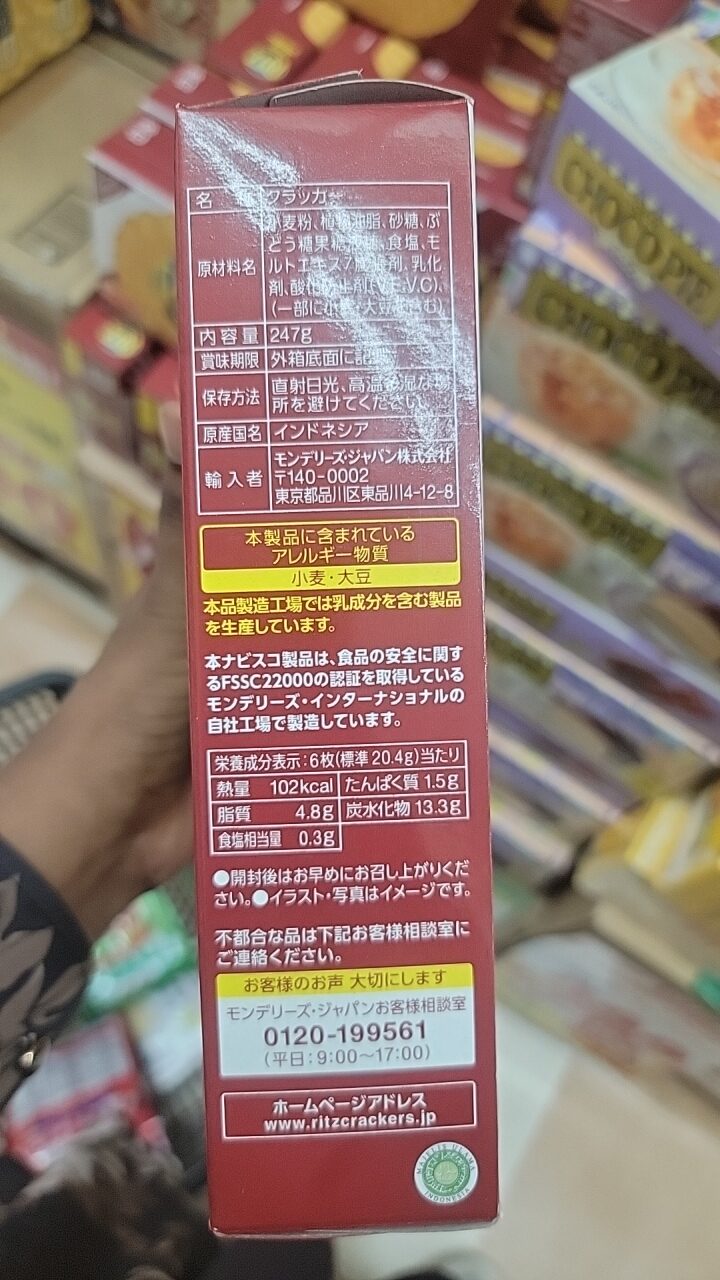
Barcode: 4547894640029
choco pie
HALAL
📝 Reason: The main concern in this Choco Pie ingredient list is with malt extract, emulsifier, and antioxidant, as their sources can be animal-derived or involve processes using Haram materials. Islamically, any ingredient with possible Haram contamination or unclear sourcing is considered Doubtful (Muslim scholars, Quran 5:3: Forbidden for you are dead animals, blood, and the flesh of swine, and that which has been dedicated to other than Allah). Ingredients like wheat flour, palm oil, sugar, corn syrup, salt, and vitamin C are safe. Without explicit E-codes or Halal certification, unclear or possibly Haram ingredients must be marked Doubtful. (Ref: IFANCA, halalfoodauthority.com, halalharam.org).
🏷️ Category: Cookies
📄 Certificates: Vegetarisch
Ingredients:
Details
Is Choco Pie Halal? Let’s Uncover the Truth!
Choco Pie has become a popular treat for many, but for those of the Muslim faith, ensuring that the food they consume is halal is crucial. This blog post will examine the ingredients of Choco Pie, its Halal status, and any controversial elements that may affect its acceptability.
Understanding the Halal Status of Choco Pie
The overall Halal status of Choco Pie is classified as HALAL. However, it’s important to delve into the ingredients to understand why certain components may raise eyebrows.
Ingredients Breakdown
Choco Pie comprises the following ingredients:
- Cracker
- Wheat flour
- Palm oil
- Sugar
- Corn syrup
- Salt
- Monosodium glutamate
- Malt extract
- Emulsifier
- Antioxidant
- Vitamin C
Ingredient Analysis
Let’s break down each ingredient to assess its Halal status:
Cracker
Cracker is a baked product and is generally Halal if made using basic ingredients. There are no haram additives explicitly listed for crackers. (Source)
Wheat Flour
Wheat flour is a plant-derived ingredient and is universally recognized as Halal. It poses no concerns for those observing dietary restrictions. (Source)
Palm Oil
Palm oil, derived from the fruit of palm trees, is another plant-based ingredient that is Halal. It is widely used in various food products and poses no Halal concerns. (Source)
Sugar
Sugar can come from sugarcane or sugar beet and is classified as Halal. This ingredient does not pose any issues. (Source)
Corn Syrup
Corn syrup is also a plant-based ingredient and holds the status of Halal. It is commonly used as a sweetener in many snacks. (Source)
Salt
Salt is a mineral and has no Halal concerns. It is universally accepted and poses no issues for Halal diets. (Source)
Monosodium Glutamate (MSG)
This flavor enhancer is Halal if it is not derived from non-Halal animal sources. The majority of commercial MSG is plant or synthetic derived. (Source)
Malt Extract
Malt extract could be derived from barley and is processed with enzymes that may be animal-derived. Due to this uncertainty, it is treated as ______ doubt unless certified as Halal. (Source)
Emulsifier
Emulsifiers may come from plant or animal sources. If they are derived from animals and are not specified to be Halal, they are marked as doubtful. (Source)
Antioxidant
Antioxidants can either be synthetic or animal-derived. Without a specific E-code and Halal certification, their status remains unclear. (Source)
Vitamin C
Generally recognized as synthetic or plant-derived, Vitamin C (ascorbic acid) is considered Halal and poses no concerns for consumers. (Source)
Conclusions on Choco Pie’s Halal Status
While most ingredients in Choco Pie are clearly Halal, components like malt extract, emulsifier, and antioxidant can be regarded with suspicion due to their potential animal-derived origins. Therefore, while the product itself is classified as Halal, it’s important for consumers to pay attention to ingredient sourcing, especially for those adhering strictly to Halal dietary laws.
For the health-conscious and the religiously observant, always seek products that carry a halal certification for peace of mind.
